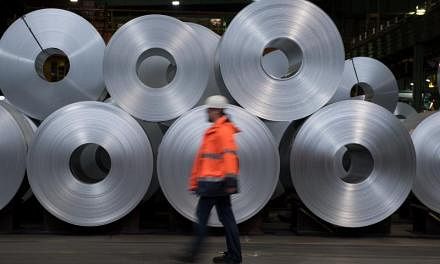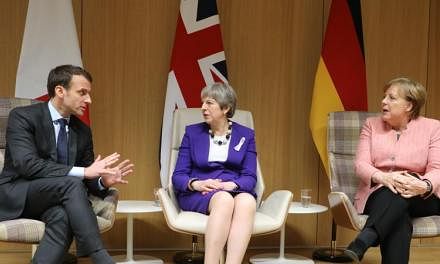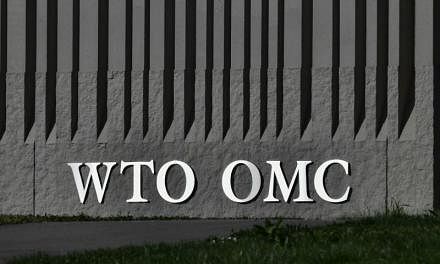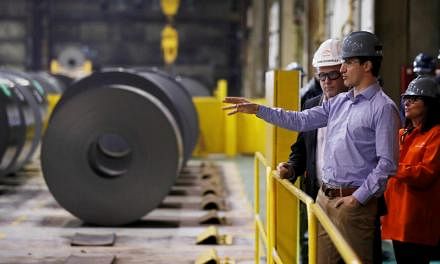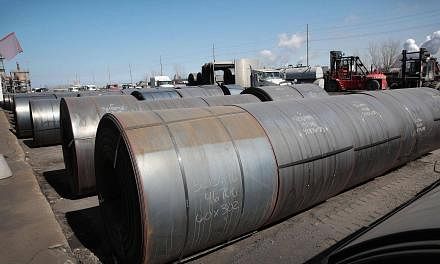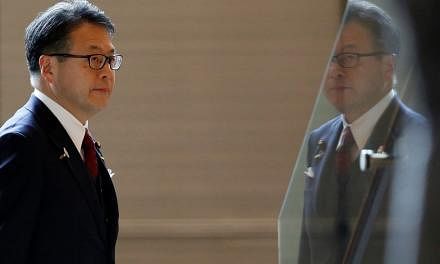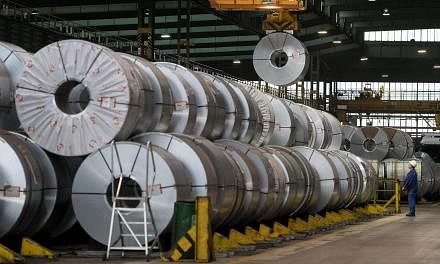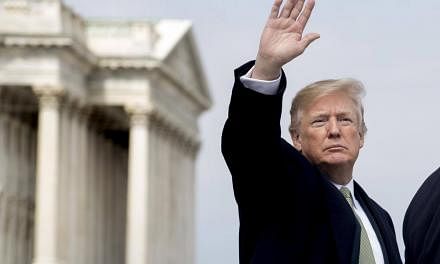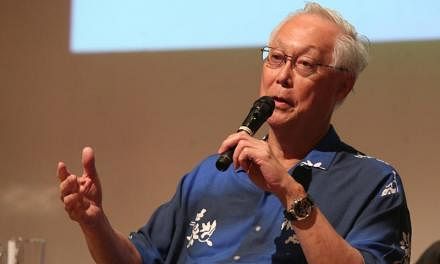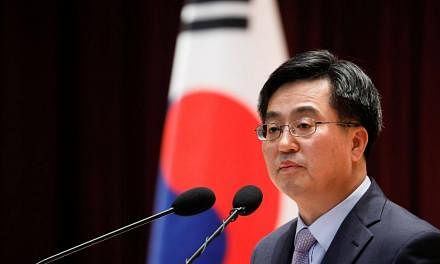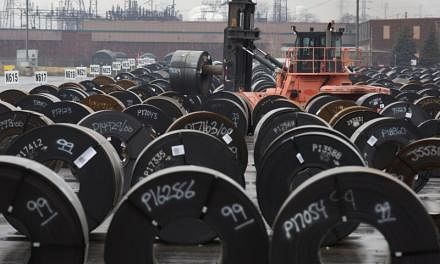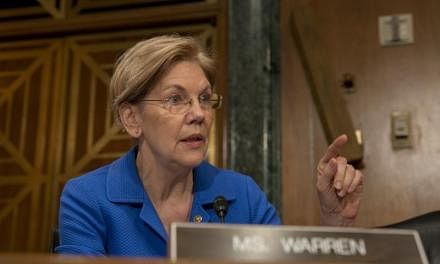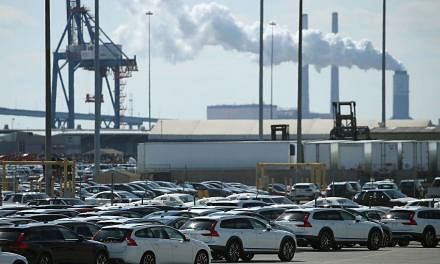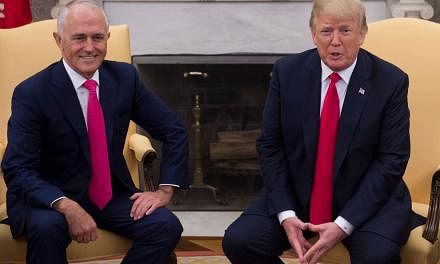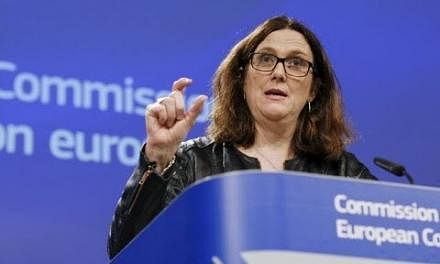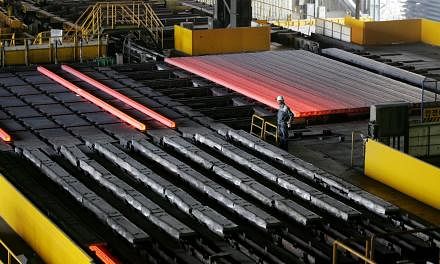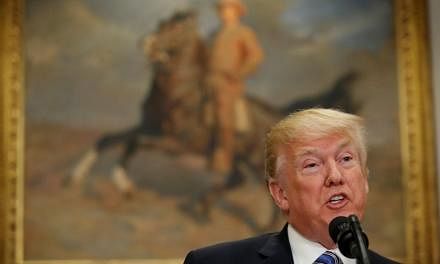LOS ANGELES - The United States wants to "change the discussion on trade," Treasury Secretary Steve Mnuchin said as he gears up for a two-day trip to China.
And he credited tough economic sanctions for bringing North Korea to the negotiating table, saying if President Donald Trump does not recertify the Iran nuclear deal on May 12, similar tough sanctions against Teheran - lifted under the 2015 deal - will go back into place.
In China, "we are looking to have a very frank discussion", Mr Mnuchin told an audience at the Milken Global conference on Monday (April 30).
"We are looking at creating a level playing field for US companies and US workers. We are also very concerned about forced transfers of technology, about forced joint ventures; these are all the issues we will be discussing."
Mr Mnuchin is scheduled to visit Beijing on Thursday (May 3) with the Trump adminstration's top economic and trade officials including Commerce Secretary Wilbur Ross, US Trade Representative Robert Lighthizer, Economic Policy advisor Larry Kudlow, and Dr Peter Navarro, Assistant for Trade and Manufacturing Policy.
"The good news is over the last year President Trump and President Xi Jinping have developed a very close relationship," Mr Mnuchin said.
"From the first meeting at Mar-a-Lago, President Trump was very clear that the major issue was the trade imbalance, that we wanted to have reciprocal trade, that our markets are open for China for investments, for trade, their markets are closed."
Mr Mnuchin gave credit to allies and to China for enforcing sanctions on North Korea.
"We put on a maximum pressure campaign, a major component of that was sanctions," he said. "These economic sanctions really do work, China was very helpful working with us on this. There's no question in my mind that the reason why he (North Korean leader Mr Kim Jong Un) is willing to negotiate is the sanctions."
"It's historical," he said of last week's inter-Korean summit. And there were high expectations of Mr Trump's upcoming summit with Mr Kim, Mr Mnuchin said.
"The President is determined that North Korea will give up their nuclear weapons," he said. "We will not take off sanctions until we are convinced and can verify that he (Kim) will give up his nuclear weapons."
"What we are trying to do with Nafta (the North American Free Trade Agreement currently being renegotiated with Canada and Mexico), with the European Union, with China, is more about free and fair balanced trade," he said.
"The United States is the most open market in the world, we want to make sure our companies have the same opportunities abroad."
Mr Mnuchin's comments came just hours before President Trump decided to push back until June 1 his decision on whether to impose controversial 25 per cent tariffs on steel and 10 per cent on aluminium from the EU and its allies. The tariff exemptions were due to expire at midnight on May 1.
Tough tactics work, Mr Mnuchin implied. "Six months ago people were concerned that the President was being too aggressive in dealing with North Korea," he said.
"North Korea is now at the negotiating table. If you want to get new deals you have to be prepared to have serious negotiations and move forward. If people know you are not going to do anything they're not going to negotiate."
In the case of Iran, if Mr Trump does not re-certify the nuclear deal known as the Joint Comprehensive Plan of Action (JCPOA) - which is widely expected - sweeping secondary sanctions against Iran will go back into place, Mr Mnuchin said.
"That means that European banks, anybody who is transacting in Dollars, cannot do business with the designated companies," he said.
Mr Mnuchin's comments came as Israeli Prime Minister Benjamin Netanyahu in Tel Aviv revealed papers obtained by Israeli intelligence that he claimed proved that Iran was actually still pursuing nuclear weapons.
Analysts said the revelations were not substantially new, and that the timing indicated Mr Netanyahu may be trying to help buttress Mr Trump's rationale for withholding re-certification.
"There is a strong belief that Iran should not have nuclear weapons, now, in five years or 25 years," Mr Mnuchin said.
"The sanctions worked, the reason why Iran came to the table and was willing to negotiate was because the sanctions were in place. Unfortunately there were three major flaws: the term of the deal, the ballistic missiles which they continue to (develop) and the third is their activities with terrorism outside of the deal."


